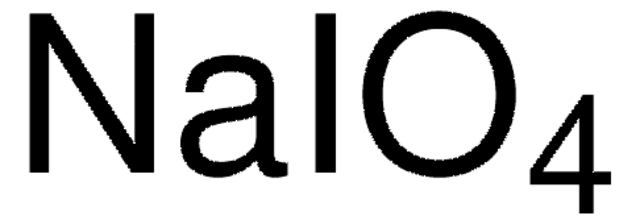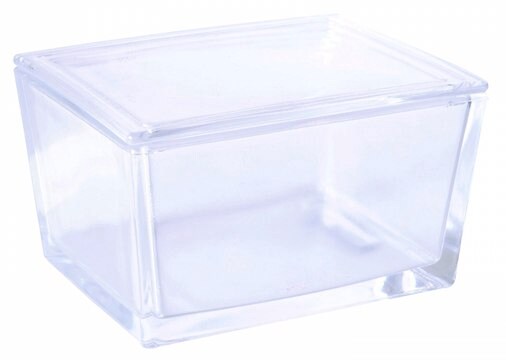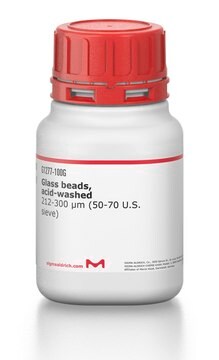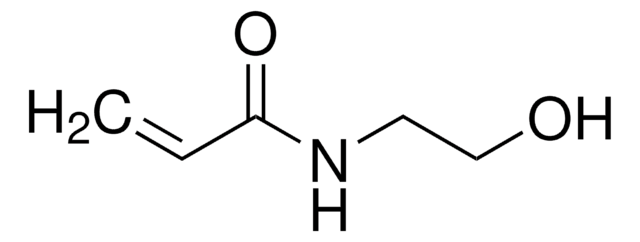71859
Sodium (meta)periodate
BioUltra, ≥99.5% (RT)
Synonym(s):
Sodium periodate
About This Item
Recommended Products
product line
BioUltra
Quality Level
Assay
≥99.5% (RT)
form
crystals
impurities
insoluble matter, passes filter test
loss
≤0.1% loss on drying, 20 °C (HV)
color
white to light yellow
pH
3.5-5.5 (25 °C, 0.5 M in H2O)
mp
270 °C ((518 °F ) at 1,013 hPa - OECD Test Guideline 102 -)
solubility
H2O: 0.5 M at 20 °C, clear, colorless
anion traces
bromide, bromate, chloride, chlorate (as Cl-): ≤100 mg/kg
sulfate (SO42-): ≤50 mg/kg
cation traces
Al: ≤5 mg/kg
Ba: ≤5 mg/kg
Bi: ≤5 mg/kg
Ca: ≤10 mg/kg
Cd: ≤5 mg/kg
Co: ≤5 mg/kg
Cr: ≤5 mg/kg
Cu: ≤5 mg/kg
Fe: ≤5 mg/kg
K: ≤50 mg/kg
Li: ≤5 mg/kg
Mg: ≤5 mg/kg
Mn: ≤5 mg/kg
Mo: ≤5 mg/kg
Ni: ≤5 mg/kg
Pb: ≤5 mg/kg
Sr: ≤5 mg/kg
Zn: ≤5 mg/kg
absorption
cut-off at 350 nm in H2O at 0.05 M
SMILES string
[Na+].[O-]I(=O)(=O)=O
InChI
1S/HIO4.Na/c2-1(3,4)5;/h(H,2,3,4,5);/q;+1/p-1
InChI key
JQWHASGSAFIOCM-UHFFFAOYSA-M
Looking for similar products? Visit Product Comparison Guide
Application
Other Notes
Signal Word
Danger
Hazard Statements
Precautionary Statements
Hazard Classifications
Aquatic Acute 1 - Aquatic Chronic 1 - Eye Dam. 1 - Ox. Sol. 1 - Skin Corr. 1C - STOT RE 1
Target Organs
thymus gland
Storage Class Code
5.1A - Strongly oxidizing hazardous materials
WGK
WGK 3
Flash Point(F)
Not applicable
Flash Point(C)
Not applicable
Personal Protective Equipment
Choose from one of the most recent versions:
Already Own This Product?
Find documentation for the products that you have recently purchased in the Document Library.
Customers Also Viewed
Our team of scientists has experience in all areas of research including Life Science, Material Science, Chemical Synthesis, Chromatography, Analytical and many others.
Contact Technical Service












